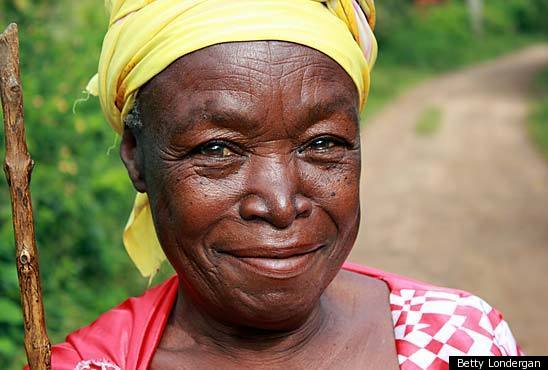
As we celebrate the 101st International Women's Day, I am reminded of the women in my life
who spend years planning and preparing for motherhood. They store names in the backs of
their minds for future children. They look for qualities in a partner who shows promise to be a
good parent and provider. They take prenatal vitamins, read parenting books and plan for the
future life they may be given the opportunity to mold.
Variations on these acts of preparation can be seen in every culture around the world. The
women of southwest Uganda are no different. Unfortunately, the HIV/AIDS pandemic swept
into their lives in the 1990's and laid waste to their plans. The high prevalence of HIV/AIDS in
this African country over the past two decades has led to the death of many able-bodied men
and women, leaving behind young families with no parental support.
These orphans have been left under the care of their grandmothers who have little or no
basic education and lack access to major sources of income. The population of this region is
comprised largely of subsistence farmers, who in preparation for retirement, sold their land and
livestock to raise money to educate their children who would grow up and take care of them.
These grandmothers had already made a lot of sacrifices, some living in small shacks on a small
square of land barely outlasting the tuition, school supplies and uniform costs all parents must
pay to educate their children. In Uganda, the educated child is their retirement fund.
Our nonprofit, The Nyaka AIDS Orphans Project (NAOP) was born out of the HIV/AIDS crisis.
We are working to free orphans from the cycle of poverty by providing a high-quality education,
both formal and informal, to children who have been orphaned due to HIV/AIDS.

In 2008, we began to help our students' caretakers, their elderly mukaakas or grandmothers. What began as a handful of guardians has blossomed into a program assisting over 6,200 grannies who are self-organized into 91 groups in three districts.
The granny groups meet regularly and provide one another support, grief counseling, care,
friendship, and love. Beyond experiencing one of the greatest tragedies a mother can face
by losing a child, they are challenged with raising their orphaned grandchildren without social
security, adequate health care, retirement, child welfare or basic housing. Without their
grandmothers, many of our students would be the head of their household and would most
likely drop out of school, becoming vulnerable to trafficking and rape.
We support these unsung heroes by providing them a Grandmothers' Coordinator who trains
them on practical life skills such as parenting, grief management, gardening, nursing, leadership
and business development.
A unique aspect of our organization is that our schools are completely free to attend and
children are guaranteed an education through high school from the moment they are enrolled.
This creates buy-in from the students to perform at their highest potential. Last year, 97% of
Nyaka students passed their Primary Leaving Exams with the equivalent of an A or B passing
grade.
Thanks to the generosity of our supporters around the world, such as The Global Fund for Children (GFC), we have changed so many women and children's lives by providing medical care, nutritious meals, books, uniforms and clean water. In 2005, GFC helped us start a gardening
program, which has grown into a 17 acre farm that feeds over 500 children at Nyaka and Kutamba Primary Schools. In partnership with Johnson & Johnson, GFC is investing in our long-term future and stability, thereby allowing us to reach more orphans and other vulnerable
children whose lives have been affected by HIV/AIDS.
With the help of the Stephen Lewis Foundation and other private family foundations, we
provided the most destitute grannies with over 150 new stable homes, smokeless kitchens and
clean sanitary pit latrines. We also have a revolving microfinance fund that helps the grannies
start small businesses, making goods like baskets and jewelry that are sold in the United States.
It takes a child to raise a village, and we know that education is the key. Our students represent
the hope that the cycle of poverty can be broken. Their efforts will rebuild the villages of
southwest Uganda, and their grandmothers will lay the foundation for a bright future ahead.
----
Twesigye Jackson Kaguri was born and raised in Uganda in the small village of Nyakagyezi.
At a very young age he demonstrated an unquenchable desire to learn, which led him to study
at and graduate from Makerere University in Kampala. During this time he co-founded the
human rights organization, Human Rights Concerns, to help victims of human rights violations
in Uganda and to educate the public about their rights. In the 90s he became a visiting scholar
at Columbia University where he studied Human Rights Advocacy. Over the years he has been
involved extensively in international community efforts as a human rights advocate, fundraiser,
and inspirational speaker.